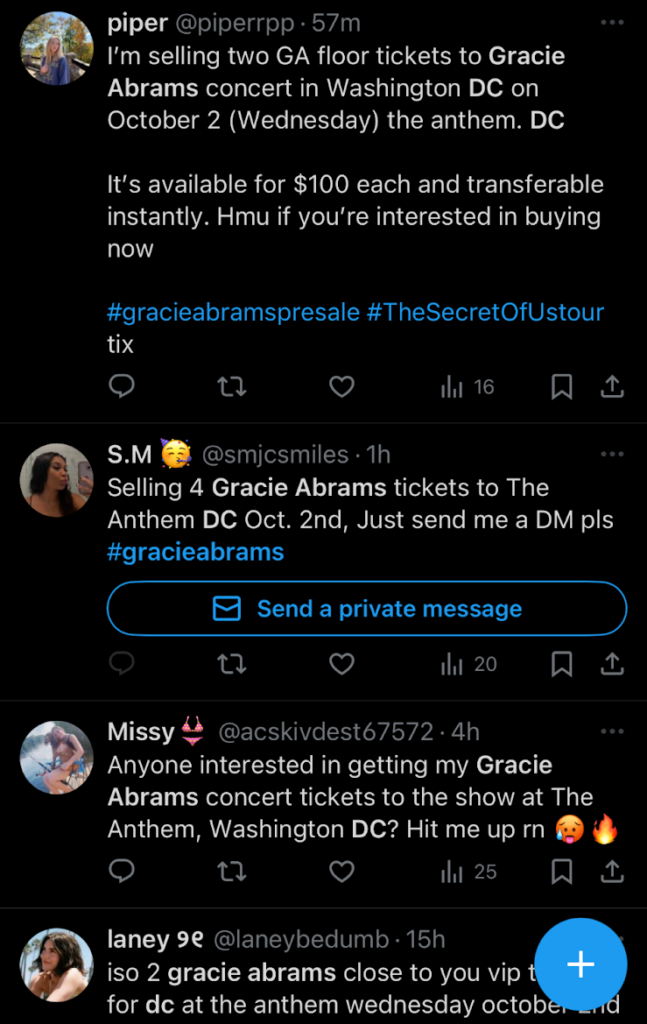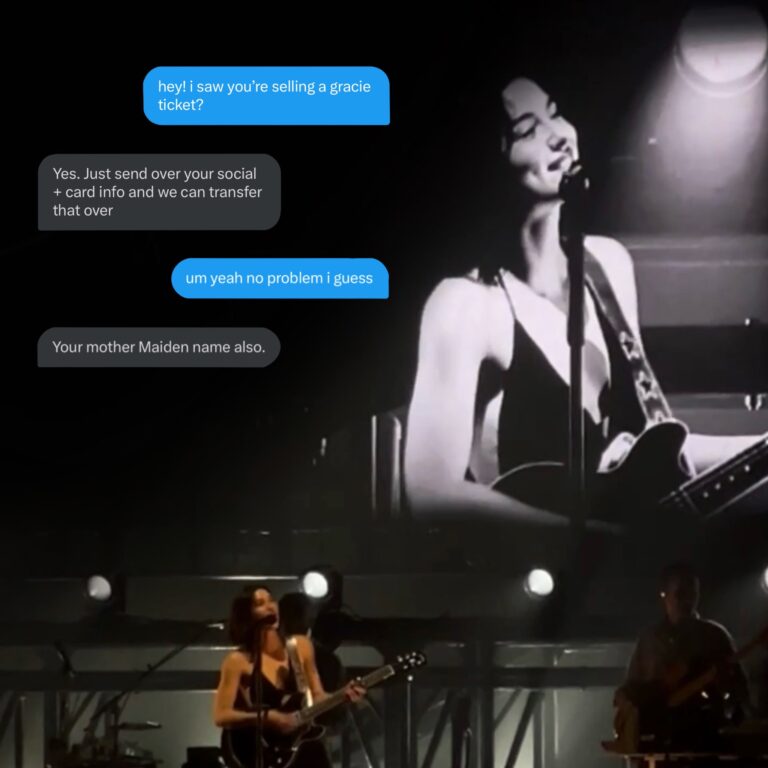If you’ve ever endured a Ticketmaster queue you know it’s not uncommon to walk away empty handed. Entering the queue only to see there are 20,000+ people in front of you has become a sort of rite of passage in today’s concert experience. If this wasn’t bad enough, when you open up any resale ticket site, prices are often more than triple the initial cost. If you’re feeling hopeless, I offer you an alternative.
Buying tickets on Twitter is not for the faint of heart but it can be one of the most rewarding experiences. I know this may sound like an abstract possibility that won’t work, but I promise I speak from experience. I’ve found face value, or very close to face value, tickets to Harry Styles, the 1975, Hozier, Taylor Swift and All Things Go all from Twitter. Twitter is a hub for every fandom and can be a goldmine when it comes to finding a ticket without dealing with scalpers, but there are many things to know and prepare for when you begin your search.
Learning to search
The first step is knowing how to search. Find the keywords of the concert ticket you are looking for. For example, if I was looking for Sabrina Carpenter tickets in Los Angeles at the Forum I would search “Sabrina Carpenter ticket LA” or “Sabrina Carpenter ticket forum,” “short and sweet tour la,” etc., anything of that general nature. If you don’t find any tickets, try swapping out different keywords. I recommend checking the search everyday, if not every time you go on your phone. As someone who is chronically online this comes easily to me, but you never know when something is going to pop up. If it’s a popular concert other people will be usually quick to jump on the ticket so there is often a short window.
Avoiding scammers
There will be tons and tons of scammers pretending to be selling tickets so proceed with extreme caution. One of the biggest indicators of scammers is the language they use. If you see the same exact tweet over and over from different accounts, it’s definitely scammers as they often just copy and paste the same thing. You should be able to tell when something is written by a person versus a bot; often you can notice odd, unnatural wording, and small grammatical mistakes, etc. that are good indicators. It is also good practice to look deeper into an account if you find a reseller who seems legitimate. Pay attention to when they joined Twitter, how often they tweet, whether they tweet about the artist etc. Be careful if you see they’ve just recently reposted a ton of random, out of order things for the artist they are claiming they have tickets for and nothing else, this can also be an indicator of a scammer.

Vetting tickets
If at this point you are confident that you’re dealing with a legitimate seller, respond to their tweet and DM them (you may have to wait till you both follow each other to be able to DM them). Once you are DMing the person, again pay attention to their language and see if they sound like a bot. Mood can be a good indicator. Real sellers are often very sweet, and will provide any information you need and they very rarely are hostile or get mad. You can establish the price of the ticket with the seller, and to verify I always ask them to send a screen recording of them going from the Twitter DMs to the Ticketmaster app and the tickets. Here pay attention to the time in the corner of the recording, any jumps in the video, etc. If you are ever concerned about a screen recording that seems legitimate but you are feeling slightly unsure, some major ticket selling accounts will let you DM them and they can also help you verify it.
Buyer protection
When you’ve verified the seller and feel good about the ticket, etc. you’ll then confirm with them that they use the PayPal goods and services feature. This is the number one thing that will protect your purchase. It has to be PayPal goods and services specifically, absolutely nothing else. This is one of the only financial transaction services that protects the purchase of concert tickets. Using the goods and services setting allows you to indicate to the site that you are expecting a good in exchange for your money and if you don’t receive it you can file a claim with PayPal. At this point if they have agreed you will give them your email, send them the money, and they will transfer the ticket to you! If there are any issues, or they don’t send you the ticket and block you, this is where buyer protection comes in and you can contact PayPal to file a claim and get your money back.
The process can seem overwhelming and intimidating, but the more you are on Twitter looking at tickets the better you will get at being able to see the clear differences in how scammers versus real people tweet. It does get easier as you go, I promise. Happy hunting!


